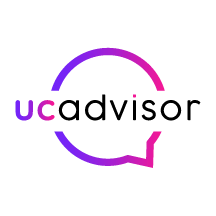
03 Jul How Housing Associations can Improve Access to Clear, Relevant, and Timely Information
Housing Associations are under significant pressure in today’s evolving world.
Like many groups and entities throughout the United Kingdom, Housing Associations have had to evolve rapidly in response to the pandemic, and the unique challenges it posed. In recent years, these organisations have also had to handle significant budget restrictions caused by economic upheaval, supply chain issues, and evolutions in workplace organisation too.
If all of that wasn’t enough, both governments and citizens alike are also beginning to hold Housing Associations to much higher standards. In a world obsessed with “user experience”, Housing Associations are expected to deliver better, faster, and more innovative services to citizens.
The Charter for Social Housing and Residents released by the government outlines a number of key areas where current and future housing associations will need to excel in order to meet with modern standards. In order to adhere to these new expectations, most groups will only have one option: digital transformation.
Improving Access to Clear, Timely and Relevant Information
The Charter for Social Housing and Residents introduces 6 crucial “demands” now imposed on Housing Associations throughout the United Kingdom. The first concept addressed by the document is that all Housing Associations should be prepared to treat residents with respect. The second highlights that they should also be able to deliver clear, accessible, timely, and relevant information.
Access to information is quickly becoming a central human right in many parts of the world. Today’s educated and connected consumers and citizens want to be able to access all kinds of data quickly and easily. Whether they’re looking for insights into the kind of housing support they can get, or they want information about how to make a maintenance request, no citizen should be expected to jump through hoops just to unlock the right insights.
Unfortunately, countless issues have made it difficult for housing associations to provide access to clear, timely, and relevant information in the past. Many housing groups still struggle with:
- Siloed technologies: The more distributed technologies an agent needs to use to serve customers, the harder it is to extract relevant information for clients when they need it. Siloed technologies can lead to gaps in information and data, which impact both the citizen experience, and the performance of the housing association.
- Poor Data Management: Distributed information and data in a complex back-end environment makes it difficult for companies to create informative resources for their citizens. Crucial insights end up locked behind walls in the data centre, rather than being accessible to the public. This means citizens need to request information from agents, rather than being able to answer questions quickly and efficiently themselves.
- Inefficient processes: Because information isn’t readily available and easy to distribute, employees end up spending a lot of their crucial time answering repetitive questions, rather than delivering exceptional service and addressing crucial concerns. Productivity and performance suffer, which means the citizen experience deteriorates too.
How Digital Transformation Improves Access to Information
For many housing associations, the first step in overcoming issues with distributed data and knowledge, is investing in the right technologies. The right tools can allow housing associations to more effectively collect, manage, and organize information, so it can be distributed effectively to citizens, on the channels or platforms of their choice.
Tools which allow companies to centralize their knowledgebases, and determine which information should be kept private, and which should be made accessible to the public, can be extremely valuable for housing associations. While private data can be used to help business leaders make more intelligent decisions to improve citizen experience, public data can empower citizens to educate themselves, and resolve their own problems.
Innovative tools and technologies can also allow Housing Associations to offer omnichannel self-service options to citizens. These proactive self-serve tools can allow citizens to request information from a bot or automated FAQ system, so they don’t have to contact a service agent to get assistance with everything from making a payment to updating a piece of information on their account.
Proactive self-service tools deliver benefits such as:
- Improved agent citizen experience: With access to self-service solution, citizens will be able to find the information they need faster, and more efficiently, on any channel they choose. Modern tools can allow companies to build bots capable of answering common questions and completing simple actions automatically into websites and mobile apps. It’s even possible to build IVR systems with natural language processing technologies, which can listen to a customer request and deliver a solution automatically in response.
- Improved agent experience: With automated solutions to handle common problems, customer service agents won’t have to address as many citizen concerns manually. Instead of dealing with repetitive queries, agents can instead focus on crucial, value-added tasks, like planning maintenance schedules, or collecting important information from housing association customers. This means the organisation can run more smoothly overall.
- Improved insights: Self-service tools designed to deliver immediate access to data for citizens can also collect useful information about the kind of questions citizens ask most often, and what issues they deal with most commonly. This can provide the organisation with more insights into where they may need to build out their current strategy to provide easier access to relevant, timely, and transparent information.
In some cases, the automated tools and solutions that can be used to deliver self-service support to citizens can also assist service agents in the housing association too. For instance, intelligent bots and virtual assistants can also deliver immediate access to information to an agent by recognising keywords mentioned in a call or entered into a platform.
Improving Access to Information, for Everyone
In order to comply with the latest expectations and regulations in the UK, housing associations need to ensure they’re not only collecting and protecting the right data, but that they’re also providing their citizens with access to the correct information too.
The best way to do this is to invest in the right technology to align databases, create knowledge centres, and deliver self-service opportunities to customers everywhere. Contact UC Advisor today to see how we can help you find the technology you need to unlock your data and expand access to information. We can even provide the funding you need to start innovating.



